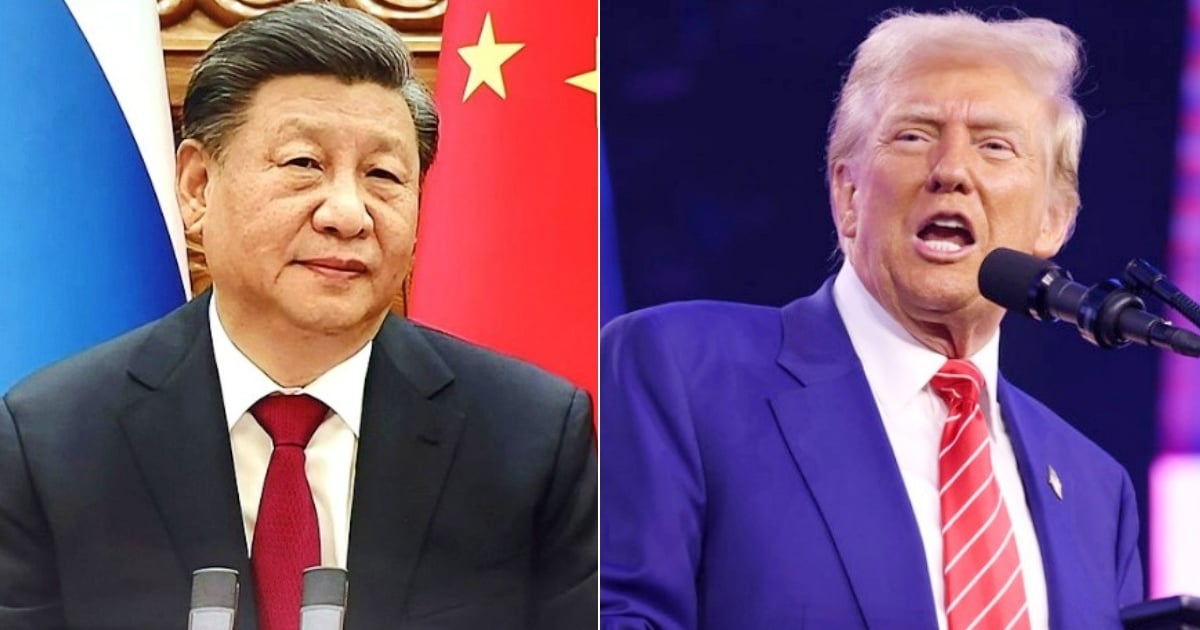
Related videos:
The trade confrontation between China and the United States has reached a new level of tension with Beijing imposing tariffs on American products in retaliation for the recent measures taken by the Donald Trump administration.
This Tuesday, the Ministry of Finance of China announced new tariffs on certain imports from the United States, including crude oil, agricultural machinery, and liquefied natural gas.
These taxes are implemented as a response to the 10% tariffs that Washington imposed on Chinese products entering the U.S. market.
The retaliatory tariffs imposed by China include a 15% levy on certain types of coal and liquefied natural gas, as well as a 10% tariff on crude oil, agricultural machinery, large-displacement cars, and trucks.
These measures will come into effect on February 10.
The Ministry of Commerce and the customs administration of China have also implemented new export controls on dozens of metallurgical products and related technologies, including tungsten, a key mineral for industrial and defense applications, as well as tellurium, used in the manufacturing of solar cells.
"China is the leading producer of tungsten concentrates, accounting for more than 80% of global production," according to estimates from the U.S. government.
Additionally, Beijing has included two U.S. companies, the biotechnology company Illumina and the fashion retailer PVH Group (owner of Calvin Klein and Tommy Hilfiger), on its list of "untrustworthy entities."
According to the Chinese government, these companies "violated the normal principles of market trade."
Investigation against Google and action before the WTO
In a separate statement, the State Administration for Market Regulation of China announced the opening of an investigation against Google for alleged violations of the country's antitrust laws.
Although Google's search engine does not operate in China, the company maintains some activities in the territory.
Beijing has strengthened its stance against U.S. measures, taking the conflict to the World Trade Organization (WTO).
"The U.S. practice seriously undermines the multilateral rules-based trading system, economic and trade cooperation between China and the United States, and the stability of the global industrial and supply chain," stated the Chinese Ministry of Commerce.
Background and reactions
The new episode of trade tensions erupts after the Trump administration imposed a 10% tariff on Chinese imports, a measure announced the previous Saturday.
Beijing responded immediately with a condemnation statement and a promise to "strongly defend its rights."
The measures of the White House are part of a broader strategy that also affects Mexico and Canada, countries that Trump blames for the illegal immigration crisis and fentanyl trafficking into the United States.
However, following discussions with the leaders of these countries, Trump agreed to "immediately pause" the tariffs on Mexico and Canada.
Trump also expressed his intention to speak with Chinese President Xi Jinping in the next 24 hours, although Beijing has not yet confirmed any call.
The fentanyl factor and the possibility of an agreement
The fentanyl trade has been another key factor in the negotiations between the two countries. U.S. authorities believe that various Chinese entities supply the chemical precursors used to produce this drug, which is then processed in laboratories in Mexico and the United States.
Beijing, for its part, argues that it has taken measures to curb the export of these products.
Despite the escalation of tensions, the 10% tariffs imposed by Trump are lower than the 60% tariffs he promised during his campaign, suggesting the possibility of room for negotiation.
The U.S. president has also indicated that he might reconsider these tariffs if both nations can reach a broader agreement on trade and global security.
Economic impact of Chinese measures in the U.S.
Chinese reprisals appear to be designed to affect specific sectors of the U.S. economy without causing a devastating impact.
China, for example, is a relatively minor importer of U.S. liquefied natural gas, acquiring only 2.3% of the total exported by the U.S.
The American automotive sector will also not be severely impacted, as the main imports of cars in China come from Europe and Japan.
This suggests that Beijing may be applying these measures as a pressure strategy ahead of future negotiations.
The current conflict between China and the United States recalls the trade war of 2018 during Trump's first term, when both countries imposed tariffs on hundreds of billions of dollars in goods.
However, the Joe Biden administration has maintained many of these tariffs and even increased them in key sectors such as semiconductors and electric vehicles.
Despite the tensions, the economies of both nations remain deeply interconnected. During the first 11 months of the last year, China exported products worth 401 billion dollars to the United States, while U.S. imports into China reached 131 billion dollars.
According to Laura Bicker, correspondent for the BBC in Beijing, "these calculated measures may just be an initial salvo from Beijing, a way to gain some negotiating power before any dialogue, but the risk remains that this could signal the beginning of a tit-for-tat trade war."
The outlook is still uncertain, but what is clear is that relations between China and the United States will continue to be defined by economic and technological competition in the coming months.
Filed under: